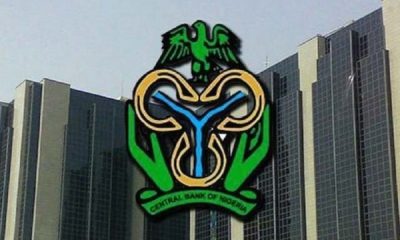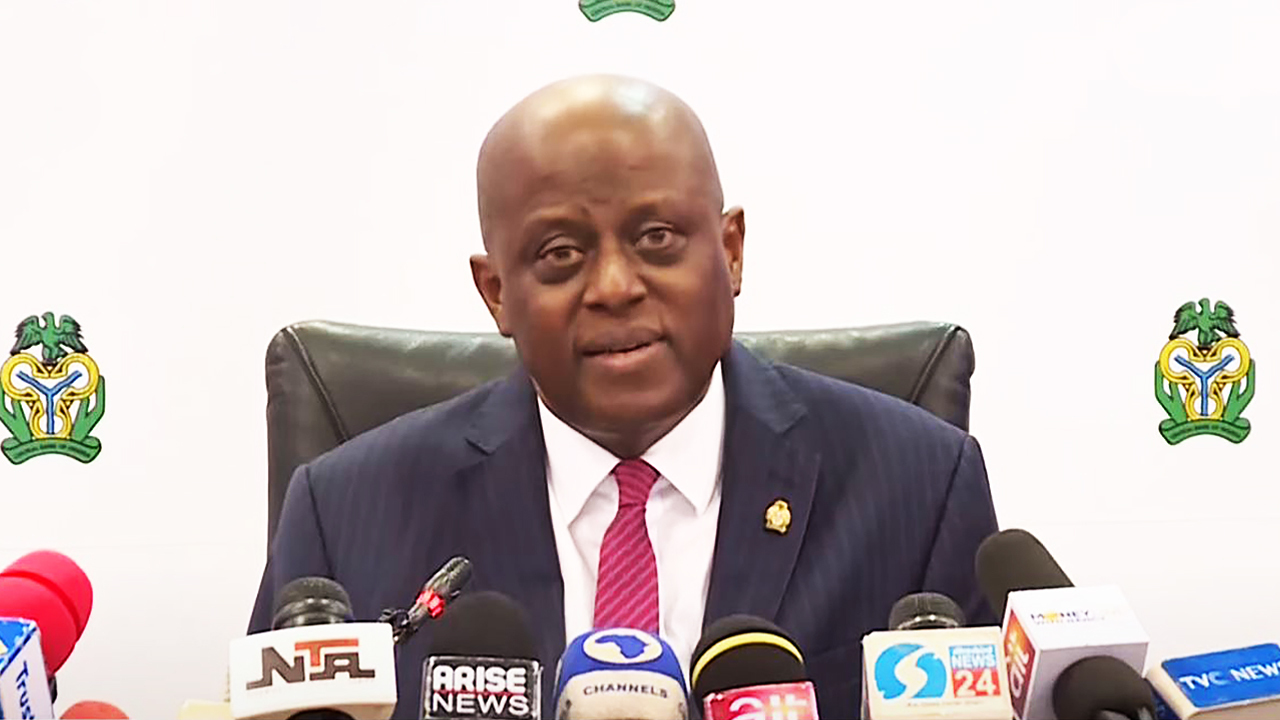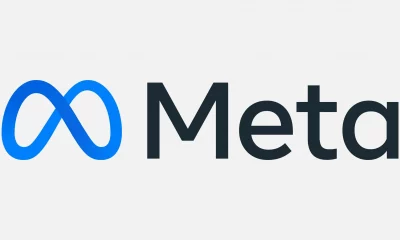General
SERAP Seeks Suspension of NIN-Mobile Number Linkage Policy

By Adedapo Adesanya
The Socio-Economic Rights and Accountability Project (SERAP) has urged President Muhammadu Buhari to stop the mandated registration of Nigerians for National Identity Number (NIN) and withdraw the threat to block SIM cards.
The group in a letter dated, December 19 and signed by its deputy director, Mr Kolawole Oluwadare, noted that President Buhari should, “instruct the Minister of Communications and Digital Economy, Mr Isa Pantami, and Director-General of the National Identity Management Commission (NIMC) Mr Aliyu Abubakar to stop the push for registration of Nigerians for National Identity Number (NIN), and withdraw the threat to block SIM cards, as the data being sought already exist in several platforms, including the Bank Verification Numbers (BVN), driver’s license, international passport, and voters’ card.”
The organisation also urged him “to instruct Mr Pantami and Mr Abubakar to take concrete measures to promptly ensure that the NIMC is able to faithfully and effectively discharge its statutory functions to harmonize and integrate existing identification databases in government agencies into the National Identity Database, and to use the information to update SIM card registration.”
Business Post had earlier reported that the federal government had threatened that SIM cards not linked to NIN by December 30, 2020, would be blocked and that telecom service providers that failed to block phone numbers without NIN would have their operating licences withdrawn.
In the letter, SERAP noted that, “No government has the right to strip its own people of their basic rights under the guise of registration for national identity number. If the authorities continue down this path, the threats to citizens’ rights such as the rights to freedom of expression and access to information, will inevitably increase, and the NIMC will remain a paper tiger.”
SERAP further said: “Instead of forcing Nigerians to register, threatening telecom service providers with sanctions and exposing Nigerians to the risks of COVID-19, your government ought to make sure that the NIMC discharges its statutory functions to harmonise and integrate existing identification databases in government agencies and make use of the information collected.
“The request for Nigerians to register for NIN is burdensome, unjustified and unnecessary. It would end up serving no other purpose than to threaten and violate the rights of Nigerians, and create a ‘chilling effect’ on citizens’ ability to participate in the fight against corruption in the country, and thereby seriously undermining the government’s oft-repeated commitment to transparency and accountability.”
The letter continued in part: “There is neither a pressing legal or practical need for this registration, which threatens Nigerians’ human rights, especially at a time your government is warning Nigerians about the second wave of the COVID-19 outbreak in the country.
“Blocking Nigerians from using their SIM cards would amount to a blatant violation of their rights to freedom of expression and access to information, and have a ‘chilling effect’ on the enjoyment of other human rights.
“We would be grateful if your government would indicate the measures being taken to stop the unnecessary registration of NIN, withdraw the threat to block SIM cards, and take concrete measures to promptly ensure that the NIMC is able to faithfully discharge its statutory functions to harmonize and integrate existing identification databases in government agencies into the National Identity Database, within 7 days of the receipt and/or publication of this letter.
“If we have not heard from you by then as to the steps being taken in this direction, SERAP shall take all appropriate legal actions to compel your government to implement these recommendations in the interest of millions of Nigerians.
“One of the stated purposes of NIMC as elaborated in section 5 [a] of the NIMC Act is to harmonise and integrate existing identification databases in government agencies into a national identity database. If the NIMC cannot perform this important statutory duty, then it has failed to achieve an obvious part of its legislative purpose.
“This push for registration will place a substantial burden on the exercise of human rights by Nigerians. It is also patently contrary to the objectives of the Nigerian Communications Commission (NCC) as contained in Section 1[g] of the Nigerian Communications Act 2003, which is to protect the rights and interest of service providers and consumers within Nigeria.
“These rights presumably include the rights to freedom of expression, access to information, life and personal security. The enjoyment of these rights forms the basis for a free and democratic society. A democratic government based on the rule of law is one that is responsible to its citizenry and seeks to represent their interests.
“The push for registration for NIN is a bad initiative, and cannot find support in existing laws, the Nigerian Constitution of 1999 [as amended] and the country’s international human rights obligations.
“SERAP notes that the information on individuals currently being sought by your government already exists in several platforms, including through multiple citizen’s collection data platforms such as the Bank Verification Numbers (BVN), international passport, driver’s license, SIM card registration and voters’ card.
“This point is buttressed by Section 5 [h] of the NIMC Act 2007, which provides that: ‘the Commission shall establish and maintain secured communication links with any existing relevant identity-related database or agency.
“The statutory duty to harmonize and integrate existing data for the purposes of NIN and SIM card registration should not be difficult to carry out, as the Nigeria Immigration Service, Independent National Electoral Commission (INEC), Central Bank of Nigeria (CBN), and Federal Road Safety Corps (FRSC) are already members of the Board of the NIMC by virtue of section 2[1][b] of the NIMC Act.
“Our requests are brought in the public interest, and in keeping with the requirements of the Nigerian Constitution 1999, the country’s international human rights obligations including under the International Covenant on Civil and Political Rights and the African Charter on Human and Peoples’ Rights. Nigeria has ratified both human rights treaties.
“According to our information, your government has issued a two-week ultimatum for the registration and linking of National Identity Number (NIN) to mobile numbers across the country.
“The NCC has also reportedly directed telecom service providers to block phone numbers without NIN while Mr Abubakar has stated that there would be no extension for the announced deadline ending 30 December, 2020.
“Your government has also reportedly threatened that, ‘After the deadline, all SIMs without NINs are to be blocked from the networks. Violations of this directive will be met by stiff sanctions, including the possibility of withdrawal of operating license.”
Before the SERAP letter, the decision had been met with public outcry over the short notice. However, telecommunication services in Nigeria had taken a step to ensure it eased Nigerians means of connecting their mobile numbers to their NIN.
General
Nigeria Signs Defence Joint Venture with Terra Industries

By Adedapo Adesanya
Nigeria has signed a joint venture with defence technology company, Terra Industries Limited, as part of efforts to boost the country’s defence industrial capacity and advance indigenous high-technology development.
The Defence Industries Corporation of Nigeria (DICON) and Terra signed a Memorandum of Understanding (MoU) for the establishment of the Joint Venture Company (JVC), both parties announced on Monday.
The partnership provides a robust framework for the local production, assembly, research and development (R&D), and training in high-technology systems, including drones, cybersecurity solutions, robotics, and other ancillary software and hardware platforms.
The MoU, executed pursuant to the DICON Act 2023, underscores DICON’s statutory mandate to collaborate with indigenous and foreign defence-related industries through Public-Private Partnerships. Under the agreement, the Joint Venture Company will operate as a subsidiary of DICON, jointly promoted and owned by DICON and Terra Industries, and duly incorporated in Nigeria.
This marks the latest move by Terra, which recently became a $100 million company, following recent raises from investors including Flutterwave CEO, Mr Gbenga Agboola, American actor Jared Leto as well as 8VC founded by the co-founder of Palantir Technologies Inc., Mr Joe Lonsdale. Other investors included Valor Equity Partners, Lux Capital, SV Angel, Leblon Capital GmbH, Silent Ventures LLC, Nova Global.
Terrahaptix, founded by Mr Nathan Nwachukwu and Mr Maxwell Maduka, are using the new funding to expand Terra’s manufacturing capacity as it expands into cross-border security and counter-terrorism.
The latest agreement with DICON is designed to establish advanced production and assembly lines for high-tech equipment within Nigeria, while promoting meaningful technology transfer, skills development, and specialised training for Nigerian personnel.
It also aims to strengthen local sourcing of raw materials, reduce dependence on imports, and enhance domestic industrial capacity and strategic autonomy. Additionally, the partnership will support the supply of security equipment to the wider Nigerian security agencies, other security agencies, positioning Nigeria as a competitive player in the global defence manufacturing sector.
Under the agreement, Terra Industries will provide technical expertise, professional services, and training, and will attract both local and foreign investment to strengthen the defence industrial ecosystem.
The company will also facilitate the procurement of production equipment, coordinate local and international training programmes, and provide access to manufacturing know-how, tooling, spare parts, and established defence sector supply chains.
Speaking on this, Mr Nathaniel Nwachukwu, CEO of Terra Industries, noted that the partnership “Demonstrates confidence in indigenous Nigerian engineering capability and creates a platform for sustainable defence technology development, innovation, and export competitiveness.”
On his part, Major General BI Alaya, the Director General of DICON, described the agreement as “A transformational step toward strengthening Nigeria’s defence manufacturing base, reducing import dependence, and positioning Nigeria as a regional hub for advanced innovation.”
The need for security has risen in recent years, as groups such as Islamic State and al-Qaeda are gaining ground in Africa, converging along a swathe of territory that stretches from Mali to Nigeria.
General
Deep Blue Project: Mobereola Seeks Air Force Support

By Adedapo Adesanya
The Director General of the Nigerian Maritime Administration and Safety Agency (NIMASA), Mr Dayo Mobereola, is seeking enhanced cooperation between the agency and the Nigerian Air Force (NAF) with the aim of strengthening tactical air support within the Deep Blue project.
During a courtesy visit last week, Mr Mobereola told the Chief of Air Staff, Air Marshall S. K. Aneke at the NAF Headquarters in Abuja, that the Air Force was a strategic partner in enhancing maritime security in Nigeria and sustaining the momentum of the Deep Blue Project’s success.
According to the DG, “We are here to seek the Air Force’s support, given the importance of tactical air surveillance to the Deep Blue Project. Nigeria is the only African country with a record of zero piracy within the last 4 years. The Deep Blue Project platforms have been used to achieve zero piracy and sea robberies in the Gulf of Guinea, and we need your collaboration to sustain this momentum”.
He further emphasised that international trade depends on security, which is why vessels prefer to go to or transit through countries where they are secured. “With the traffic we have now, we need to show more security might through collaboration to strengthen our trade viability because of the risks attached to our route. We need these collaborations to sustain what we have achieved so far with the Deep Blue Project”.
The NIMASA DG expressed hope that the collaboration with the Nigeria Air Force will reduce response time.
On his part, the Chief of Air Staff, Air Marshall S.K. Aneke, noted that the Air Force desires to be “a very supportive and collaborative partner with NIMASA and is ready to match the Agency step by step and side by side to achieve the desired results.”
He noted that “collaboration between NIMASA and the Nigerian Air Force under the Deep Blue Project can be strengthened through a joint strategic framework, integrated command structures, and a standing steering committee to ensure shared objectives and accountability.
“Establishing a joint maritime domain awareness fusion cell will enable real-time intelligence sharing, synchronised surveillance, and faster response to maritime threats and ensure sustained operational effectiveness across Nigeria’s territorial waters and exclusive economic zone,” he said, according to a statement.
The Air Force Chief added that the Air Force can also support NIMASA outside the Deep Blue Project operations by providing its own ISR platforms, tactical air support, and rapid airborne deployment for interdictions and search and rescue missions.
While thanking the NIMASA DG for the basic trainings the Agency has provided the aircraft pilots under the Deep Blue Project, Air Marshall Aneke also highlighted areas of operational challenges needing NIMASA’s attention to include bridging the communication gap between NAF operators and NIMASA, higher level and in-depth maintenance trainings, readily available fueling of aircrafts to avoid delays on missions, and provision of flying kits among others.
He therefore pledged the Air Force’s collaboration and assured that the request by NIMASA has been noted and that things will begin to move at thrice its speed going forward.
General
Nigeria’s Democracy Suffocating Under Tinubu—Atiku

By Modupe Gbadeyanka
Former Vice President, Mr Atiku Abubakar, has lambasted the administration of President Bola Tinubu for the turnout at the FCT Area Council elections held last Saturday.
In a statement signed by his Media Office, the Adamawa-born politician claimed that the health of Nigeria’s democracy under the current administration was under threat.
According to him, “When citizens lose faith that their votes matter, democracy begins to die. What we are witnessing is not mere voter apathy. It is a direct consequence of an administration that governs with a chokehold on pluralism. Democracy in Nigeria is being suffocated slowly, steadily, and dangerously.”
He warned that the steady erosion of participatory governance, if left unchecked, could inflict irreversible damage on the democratic fabric painstakingly built over decades.
“A democracy without vibrant opposition, without free political competition, and without public confidence is democracy in name only. If this chokehold is not released, history will record this era as the period when our hard-won freedoms were traded for fear and conformity,” he stressed.
Mr Atiku said the turnout for the poll was below 20 per cent, with the Abuja Municipal Area Council (AMAC) recording 7.8 per cent.
He noted that such civic participation in the nation’s capital, the symbolic heartbeat of the federation, is not accidental, as it is the predictable outcome of a political environment poisoned by intolerance, intimidation, and the systematic weakening of opposition voices.
The presidential candidate of the People’s Democratic Party (PDP) in the 2023 general elections stated that the ruling All Progressives Congress (APC) under Mr Tinubu has pursued a deliberate policy of shrinking democratic space, harassing dissenters, coercing defectors, and fostering a climate where alternative political viewpoints are treated as threats rather than contributions to national development.
He called on opposition parties and democratic forces across the country to urgently close ranks and forge a united front, declaring, “This is no longer about party lines; it is about preserving the Republic. The time to stand together to rescue and rebuild Nigeria is now.”
-

 Feature/OPED6 years ago
Feature/OPED6 years agoDavos was Different this year
-
Travel/Tourism10 years ago
Lagos Seals Western Lodge Hotel In Ikorodu
-

 Showbiz3 years ago
Showbiz3 years agoEstranged Lover Releases Videos of Empress Njamah Bathing
-

 Banking8 years ago
Banking8 years agoSort Codes of GTBank Branches in Nigeria
-

 Economy3 years ago
Economy3 years agoSubsidy Removal: CNG at N130 Per Litre Cheaper Than Petrol—IPMAN
-

 Banking3 years ago
Banking3 years agoSort Codes of UBA Branches in Nigeria
-

 Banking3 years ago
Banking3 years agoFirst Bank Announces Planned Downtime
-

 Sports3 years ago
Sports3 years agoHighest Paid Nigerian Footballer – How Much Do Nigerian Footballers Earn



















